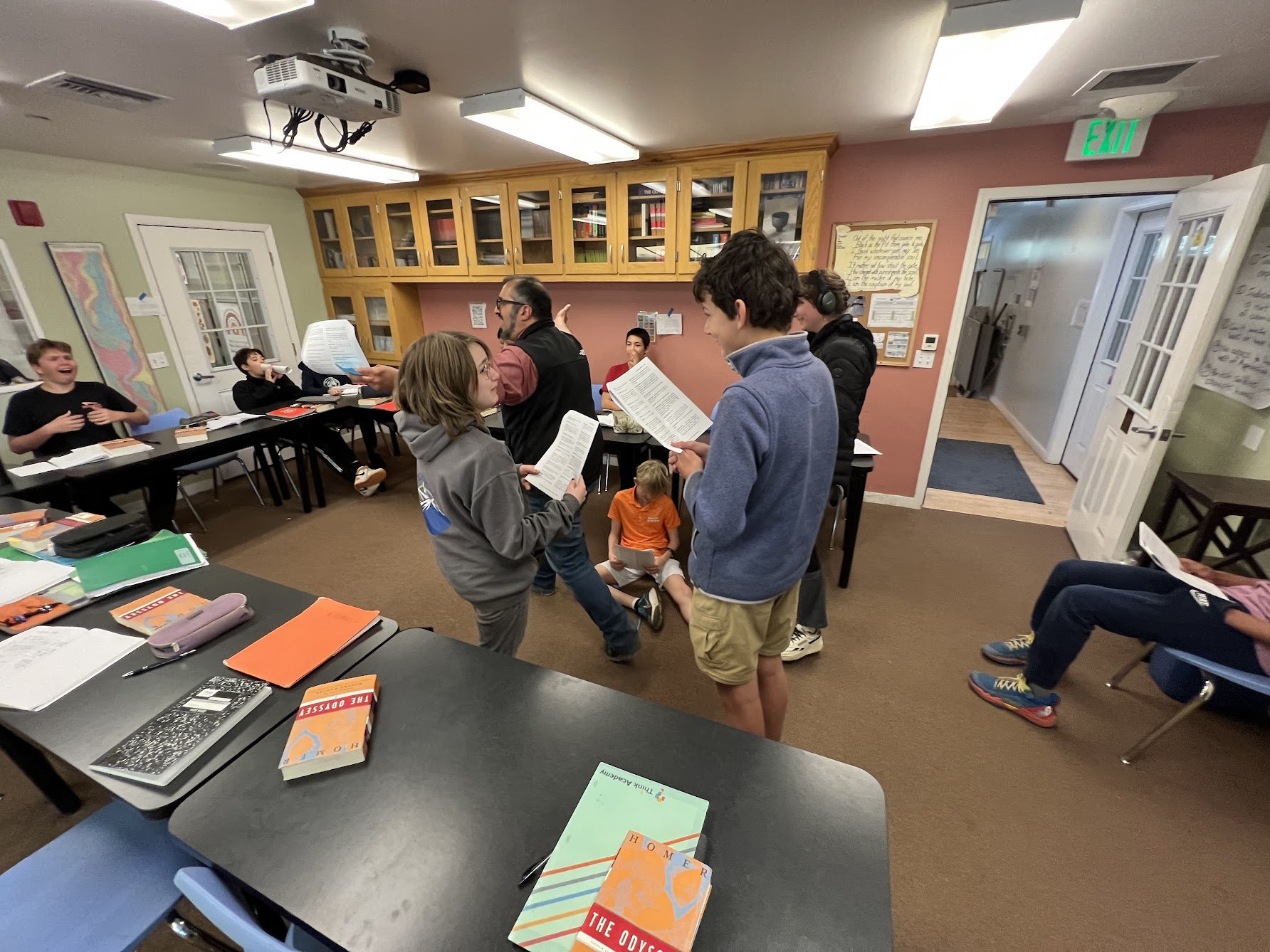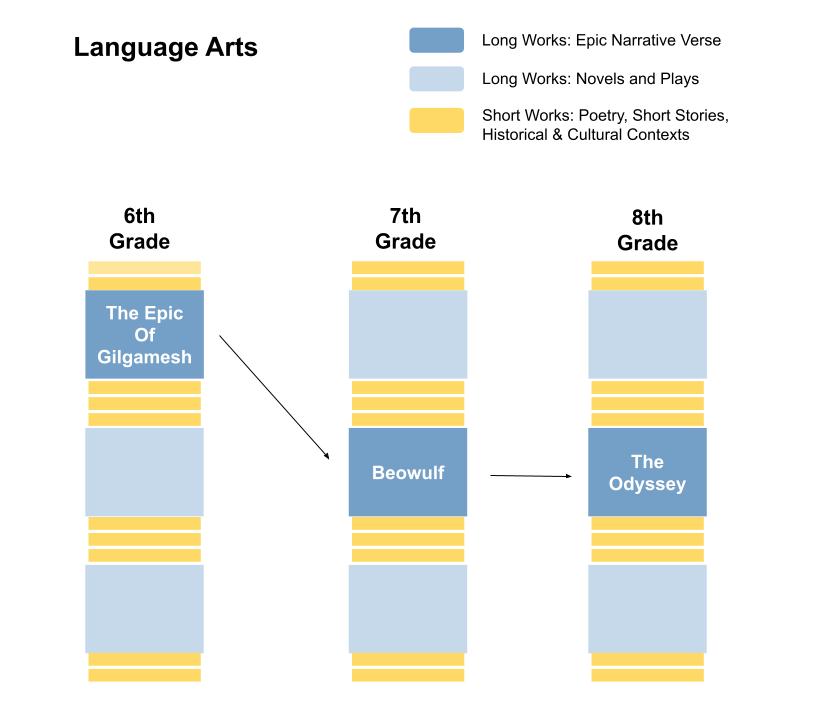Program Overview
A love of reading, enthusiasm for writing, and confident oratory form Odyssey’s Language Arts program. We challenge the boundaries of literacy in a supportive, stimulating scholarly environment. Students deepen their critical reasoning and analytical skills through close reading of literature, poetry, myth, and theater. Our curriculum is writing intensive. Students write daily, with a focus on note taking, creative self-expression, and strengthening their writing voice. Creative writing is an essential feature of the program, with original student- authored short stories written in class every week.
Through frequent and varied writing assignments, students pursue mastery of all stages of the writing process – ideation, drafting, editing, rewriting, and polishing. With guidance and practice, students discover the courage to try again when a piece of writing doesn’t work out. Collaboration is nurtured in writing workshops, where students learn to edit and revise both their work and peers’ work. Students read aloud often, keeping an academic foot firmly planted in the art of the spoken word and public speaking. We produce scholars who appreciate and take delight in the complex world around them, and contemplate their place in it.


Program Content
Each year in Language Arts, students read multiple long works – novels, epic poems, and full length plays. The keystone book of each grade is a narrative epic poem from antiquity: Gilgamesh in 6th grade, Beowulf in 7th grade, and The Odyssey in 8th grade. Additional long works include, but are not limited to, Jack London’s Call of the Wild, August Wilson’s Joe Turner’s Come and Gone, Ray Bradbury’s Fahrenheit 451, Lorraine Hansberrry’s A Raisin in the Sun, and Shakespeare’s plays. When studying theater, students actively engage with the spoken word through in-class performances of the entire play, called “table readings”. Students take turns reading parts, often outside on the front lawn or under oak tree canopies. Long works are complemented by short fiction, poetry appreciation, creative and expository writing, and lecture units on historical and cultural context.
